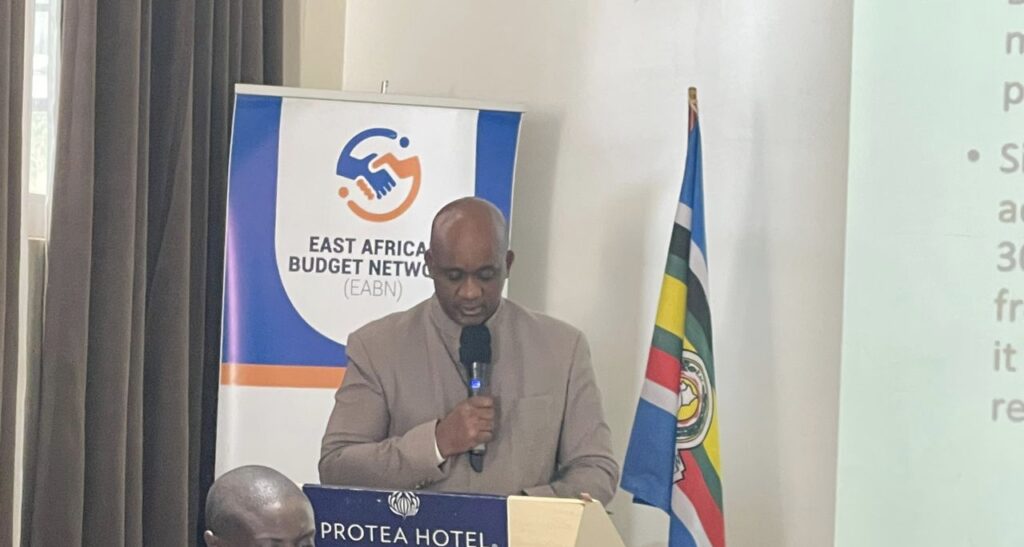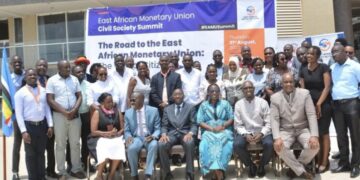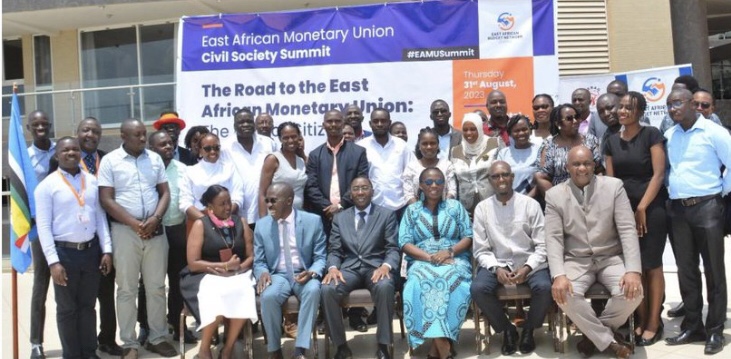Civil Society Organizations in the East African region have urged Partner states in the community to expedite actions of the monetary union roadmap towards attaining a single currency regime in East Africa.
The East African Monetary Union has been extended. This was envisaged to happen in 2024, However, given the current circumstances, it is now expected to be implemented in 2031.
According to some analysts, this is a major setback and with all the technical effort it requires, some more complex nontechnical issues must equally be addressed.
The EAMU protocol was adopted in accordance with the EAC treaty and signed on 30th Nov 2013, it lays the groundwork for a monetary union within 10 years and allows the member states to progressively converge their currencies into a single currency in the community.
Under the umbrella organization of the East African Budget Network (EABN), CSOs called on the leadership of the EAC to fast-track, solve and deliver on the pending issues of the East African Monetary Union roadmap whose timeline was extended.
Speaking at A CSO summit held in Kampala, The Executive Director of Civil Society Budget Advocacy Group (CSBAG), Julius Mukunda, said the plan to have a single East African currency in 2024 collapsed in 2019 after the EAC Council of Ministers, the central decision-making and governing organ of the EAC, resolved the deadline was not attainable, sending member countries back to the drawing board.
He noted that these extended the deadline for attaining a single currency regime to 2031 to eliminate transaction costs of exchanging currencies and remove volatility in cross-border trading activities.

“There is work to be done. The East African monetary union has been left to politicians but as Civil Society we have a role to play and to follow up the processes,” Mukunda said.
The CSO summit was organized by CSBAG, the host of the East African Budget network, and attended by m CSOs from Rwanda, Kenya, Uganda, Burundi and Tanzania.
They deliberated on CSOs’ commitment to engage their countries to work towards achieving a single monetary union within East Africa.
In the run-up to achieving a single currency, the EAC Partner States aimed to harmonize monetary and fiscal policies; harmonize financial, payment and settlement systems; harmonize financial accounting and reporting practices; harmonize policies and standards on statistical and establish an East African Central Bank.
In his keynote address the Commissioner at Ministry of Finance, Planning and Economic Development, Dr Albert Musisi agreed that CSOs have a crucial role to play in attaining the East African Monetary Union.
“CSOs are the most critical stakeholders in driving the implementation of agreed actions,” Musisi stated.
He called upon Civil Society to utilize the rules of Observer Status.
The granting of observer status with respect to the Community shall in case of an inter-governmental organization or civil society organization, be the prerogative of the Council.
He argued that this gives CSOs, an opportunity to attend meetings of the organs of the Community, provide input on subjects that concern them and reply to questions directed at them.
However, the Commissioner outlined some of the challenges derailing the East African Monetary Union(EAMU) among the fears of losing national sovereignty and the ability to make independent national decisions have affected full implementation.
The current chair of EABN from Rwanda, Alexis Nkurunziza argued that its time to put pressure on politicians to expedite the East African Monetary Union.
He pointed out that without citizens participation in the budget processes, it is hard to know the priorities each country is taking.
Julius Kapwepwe, EABN Coordinator emphasized the need for the EAC citizens to hold their governments accountable to what they have signed to fast-track the harmonization of policies that will yield the East African Monetary Union.









